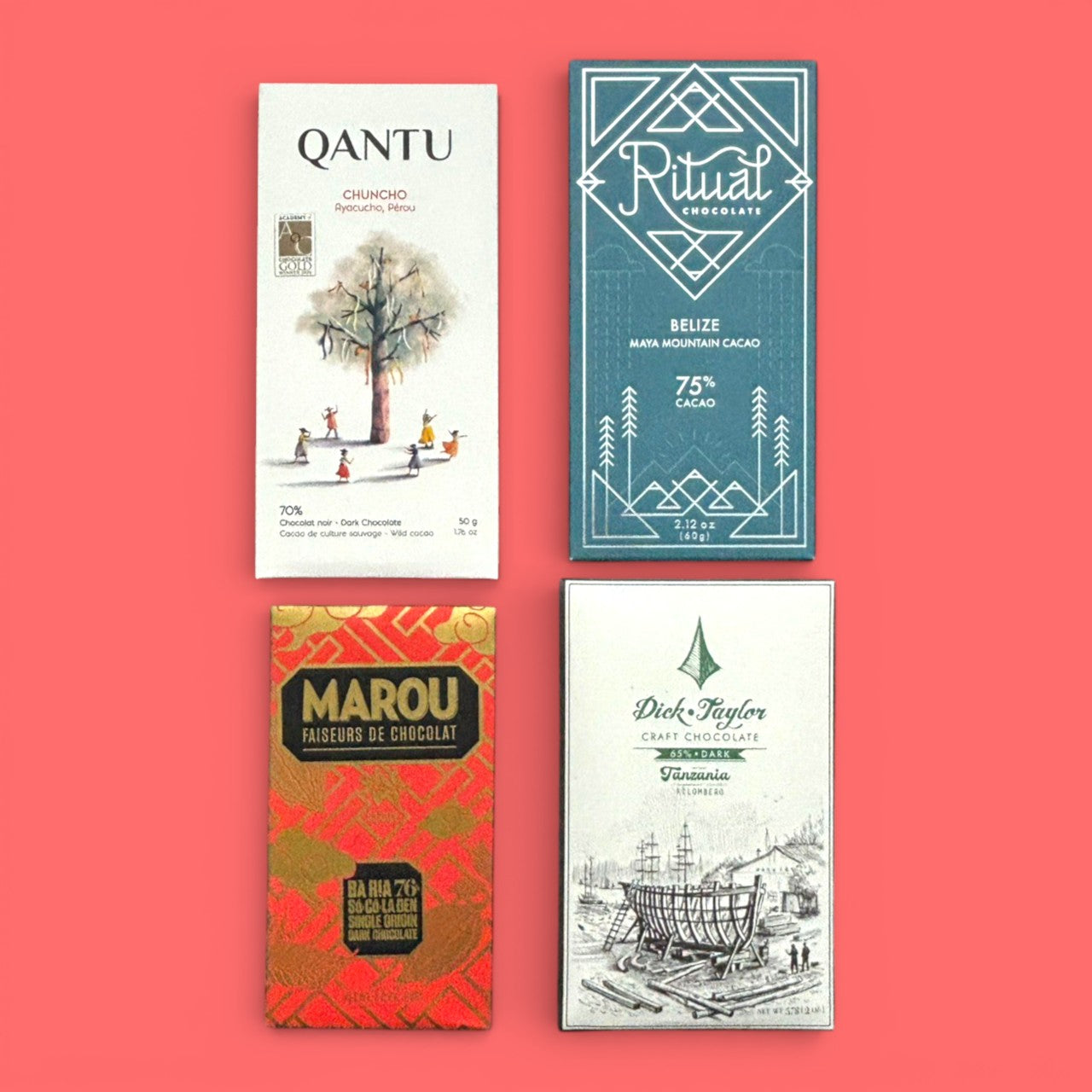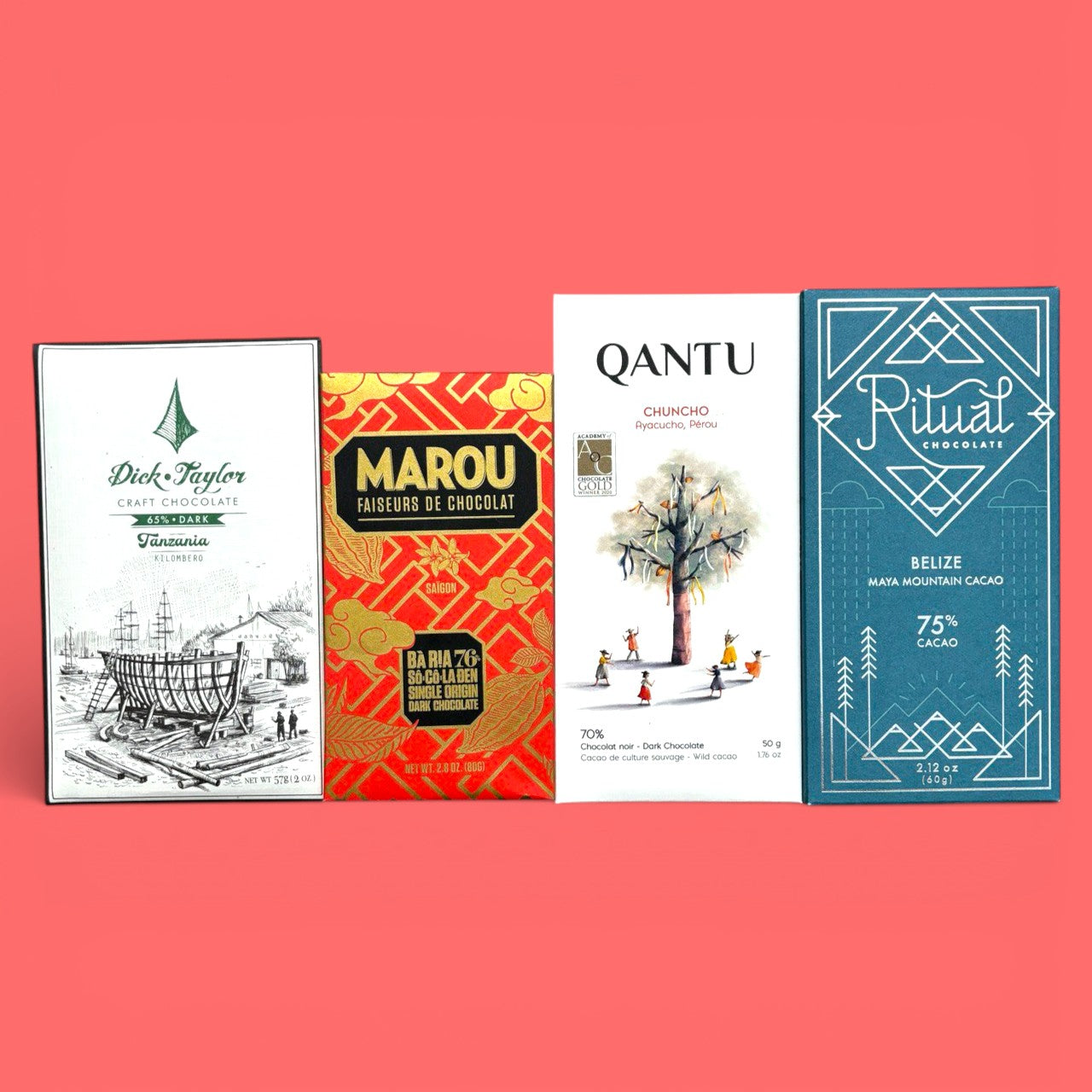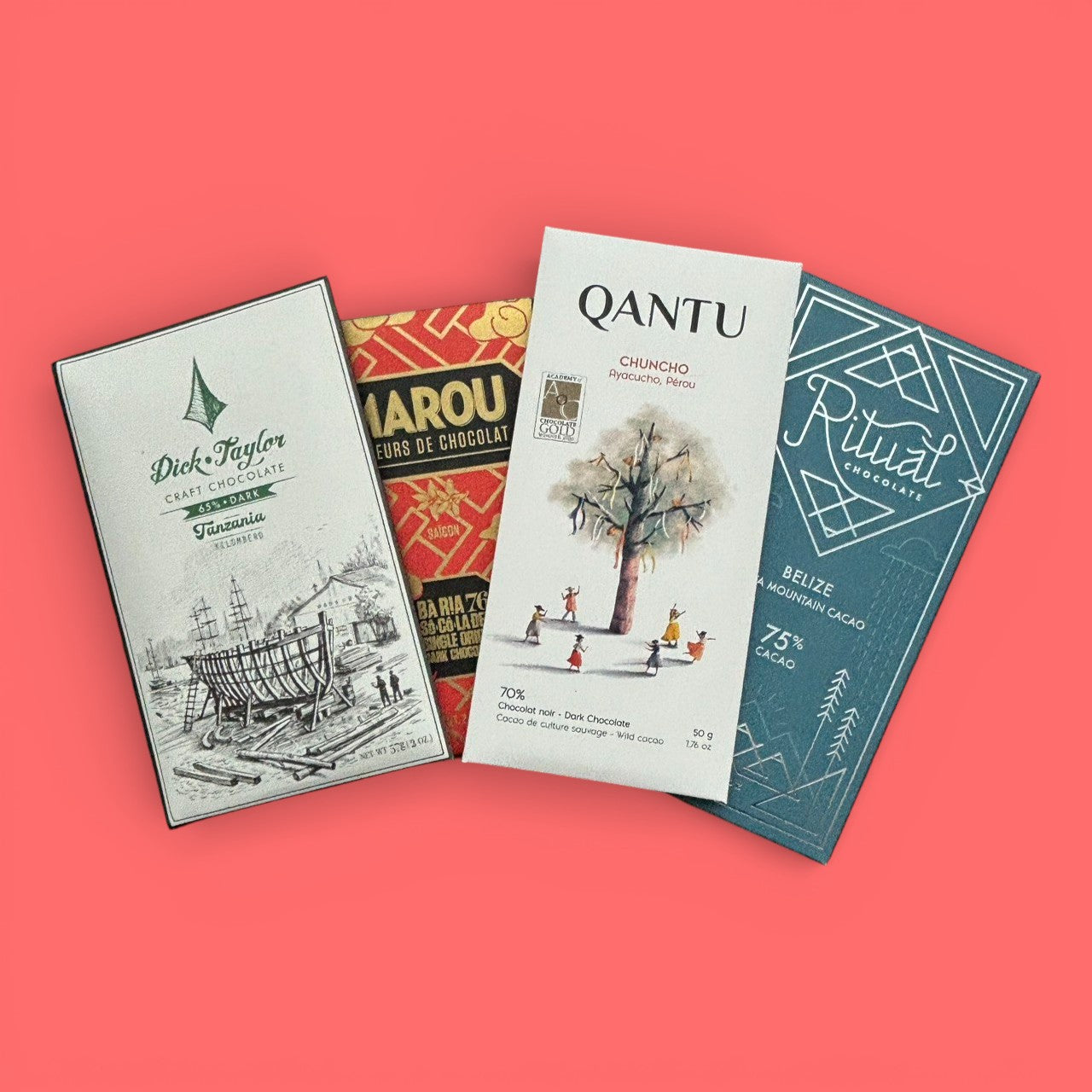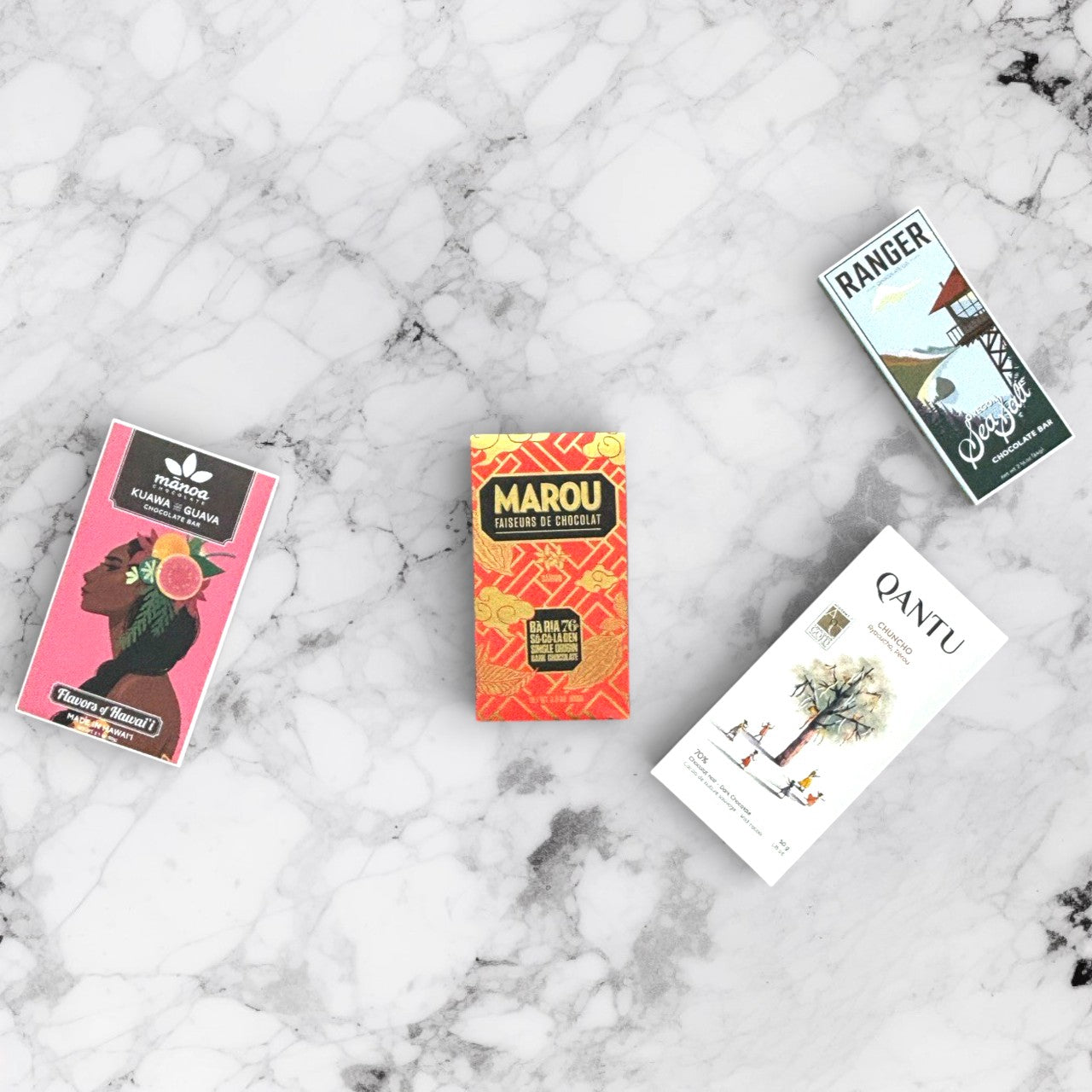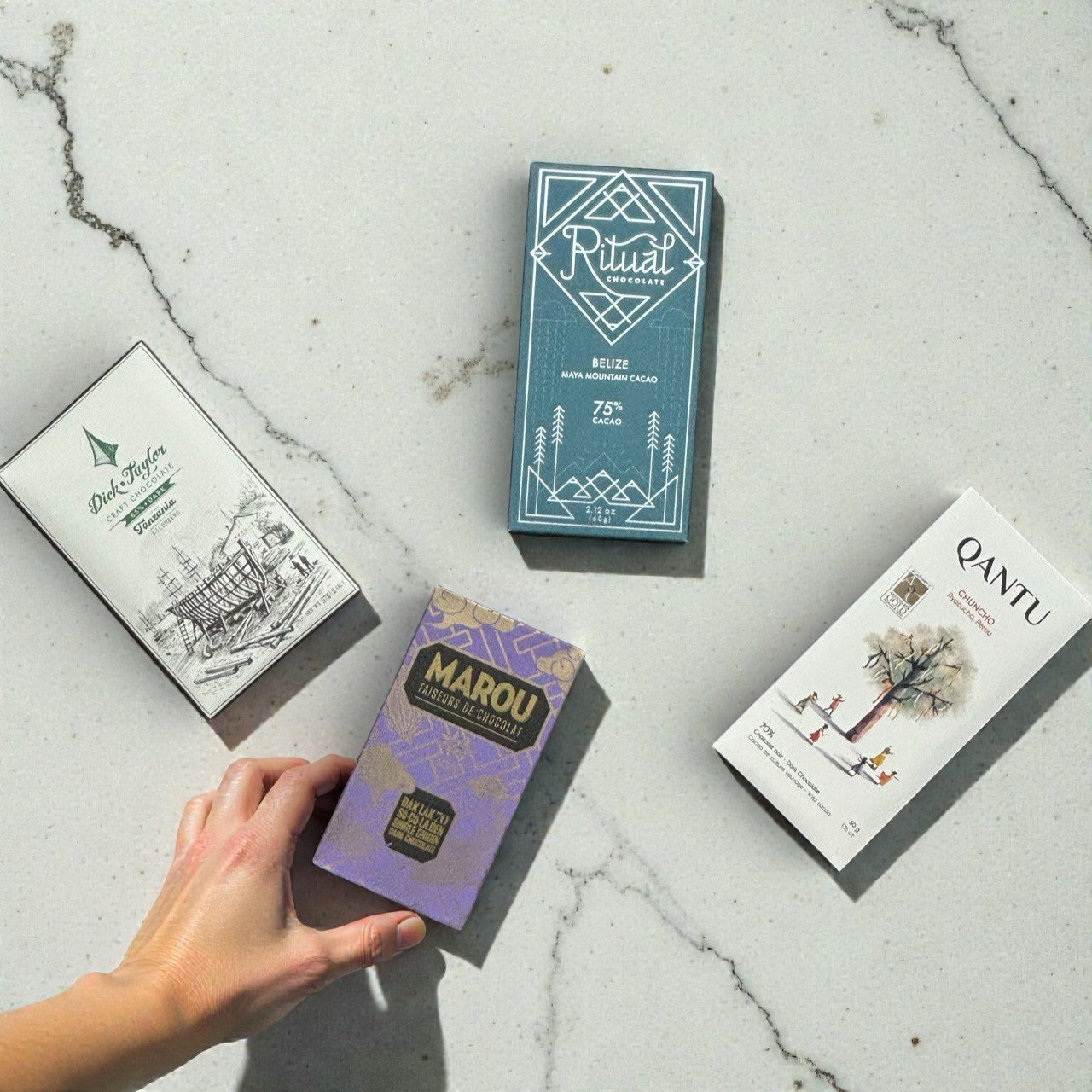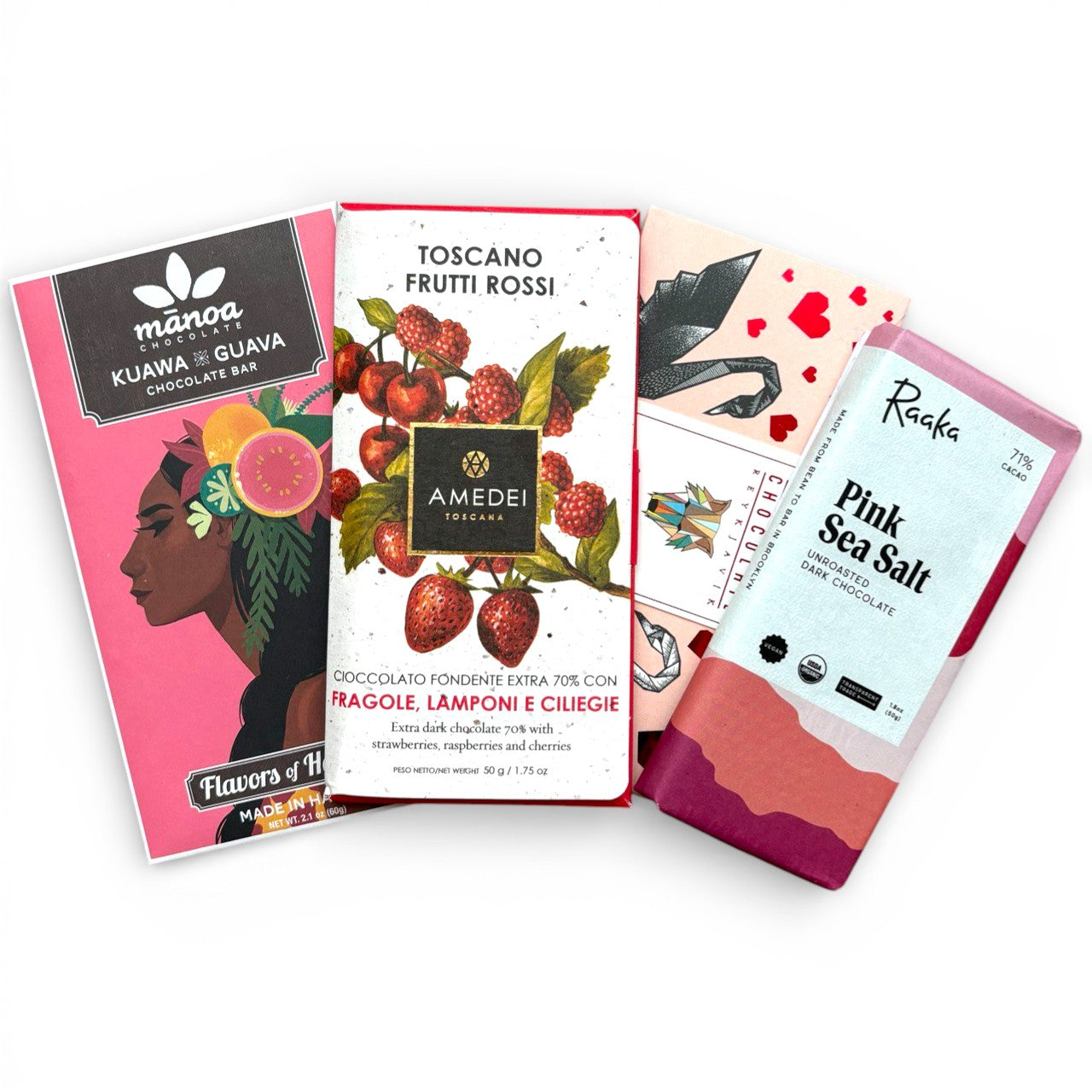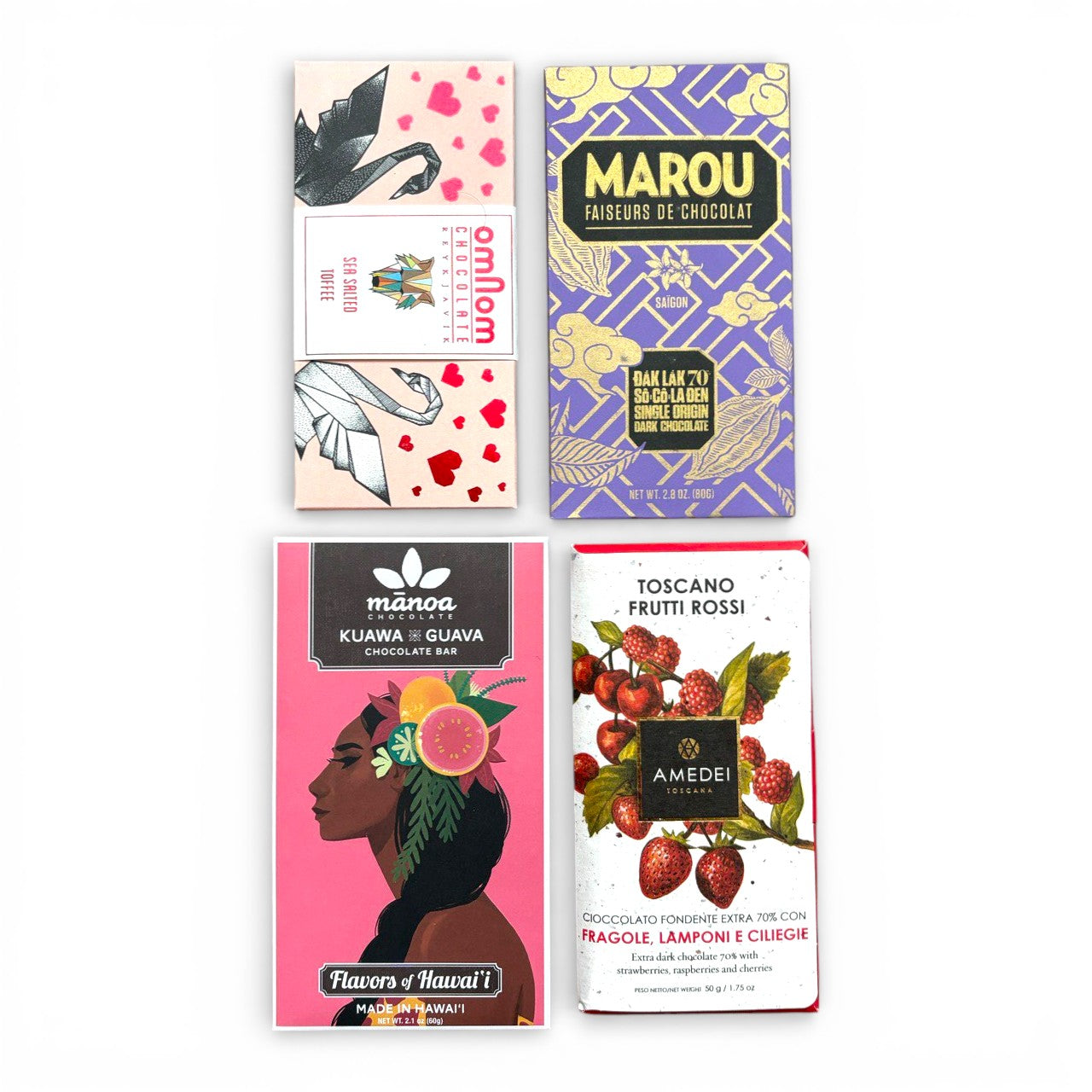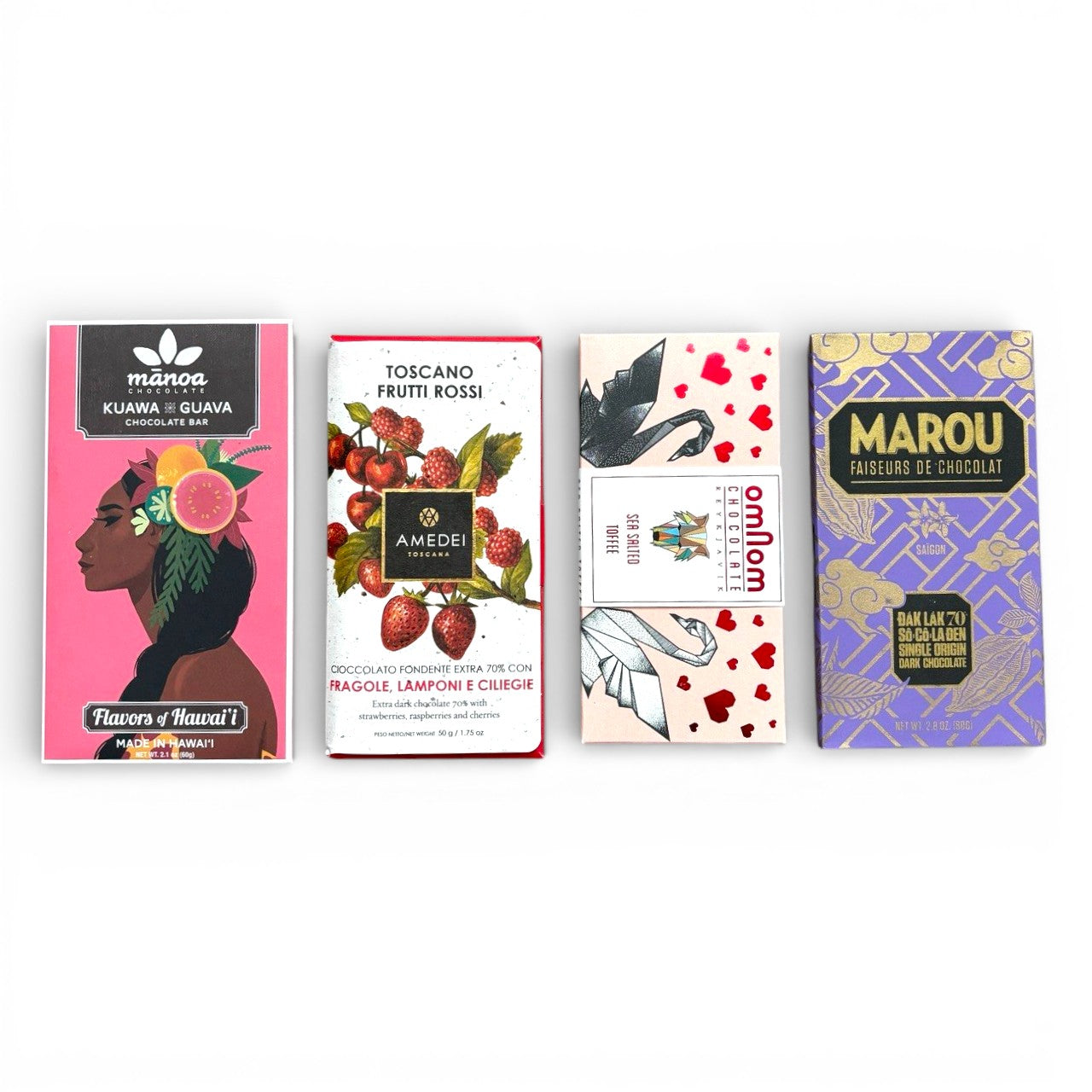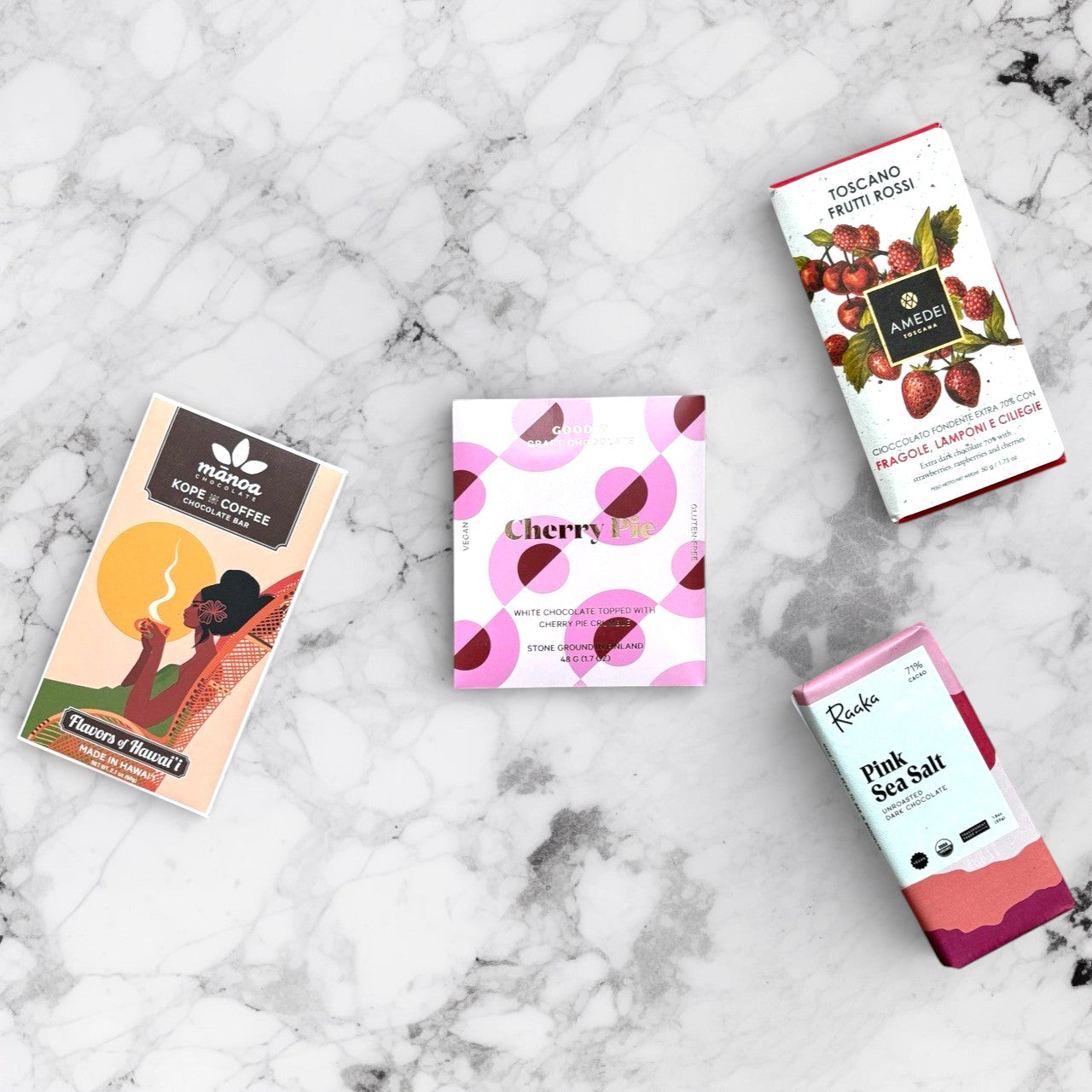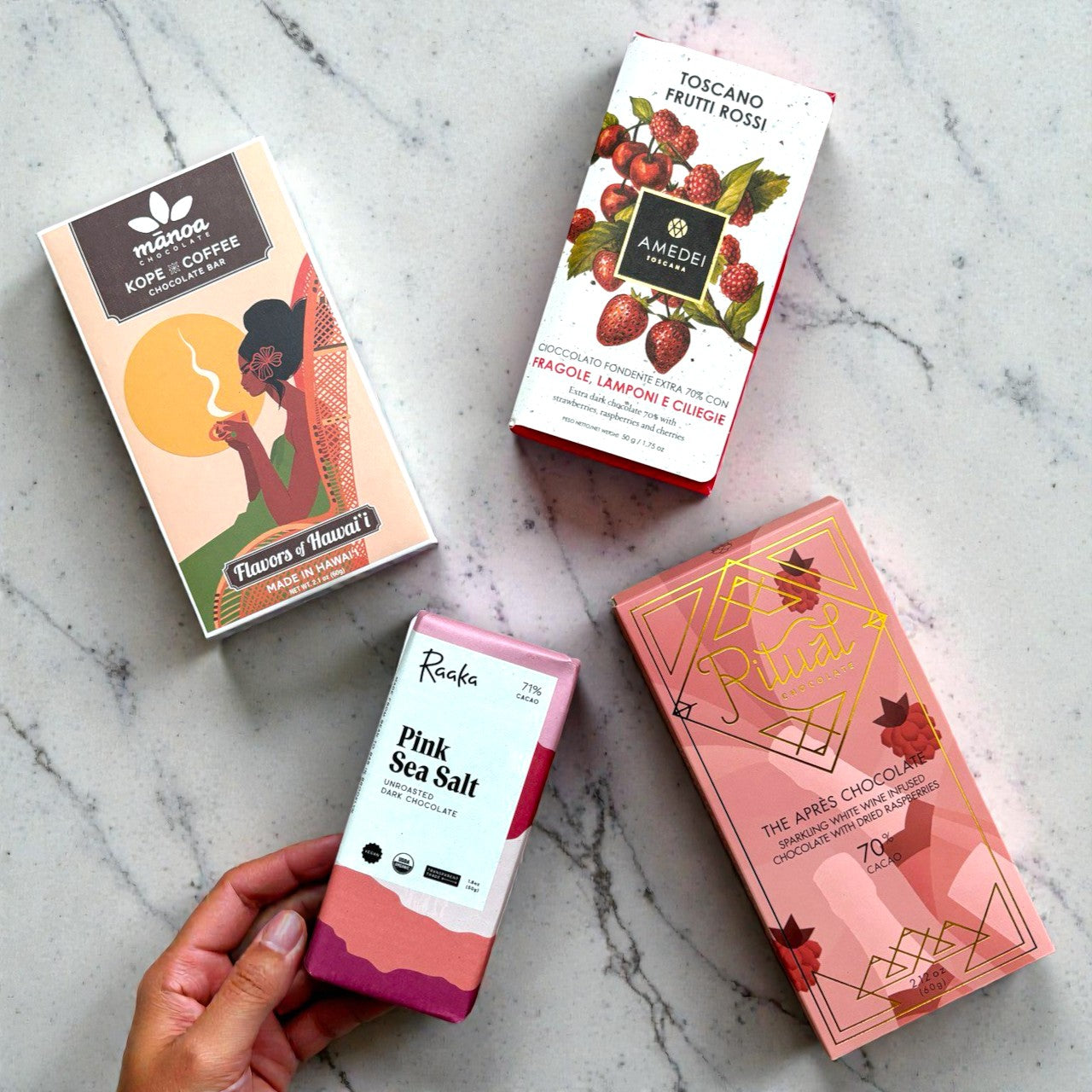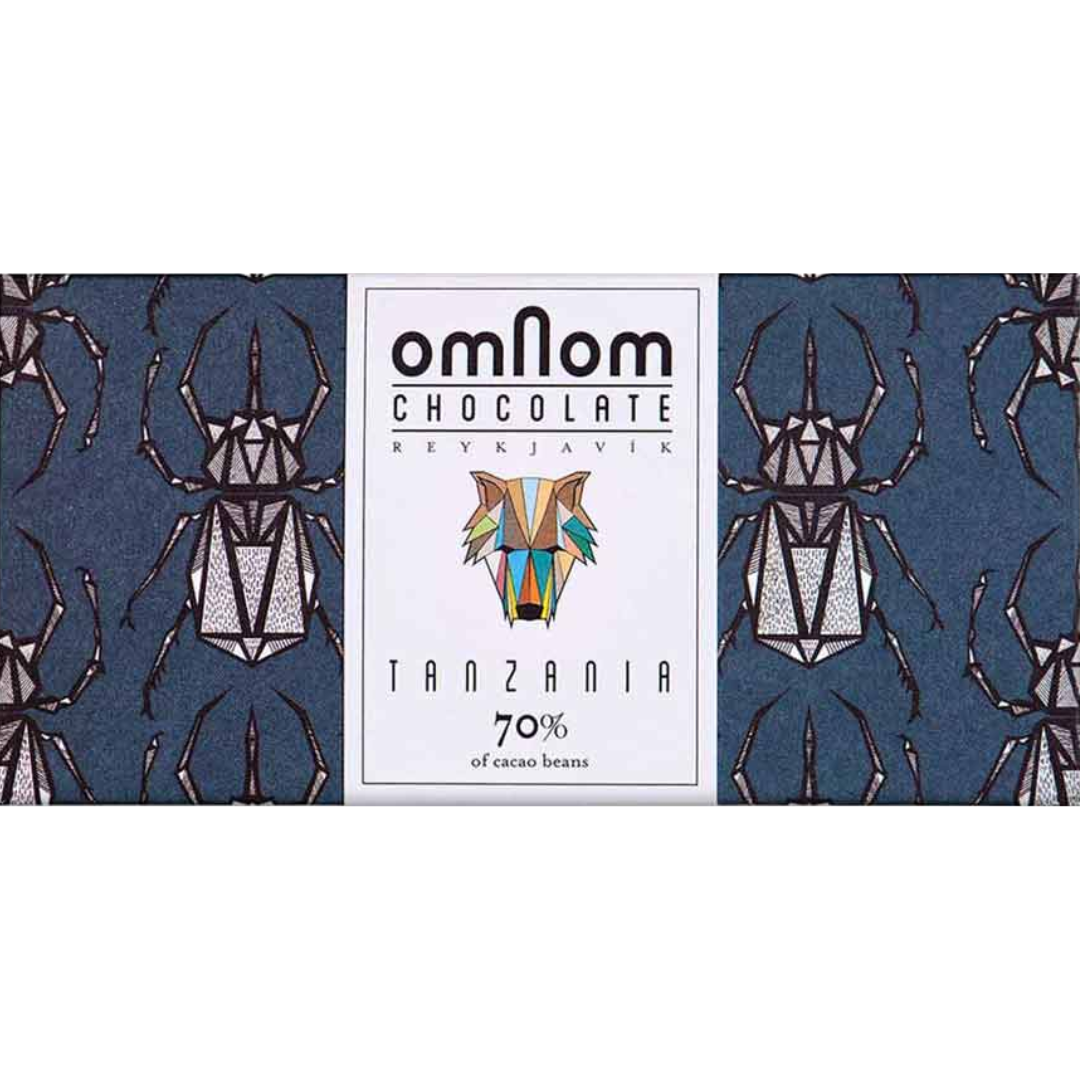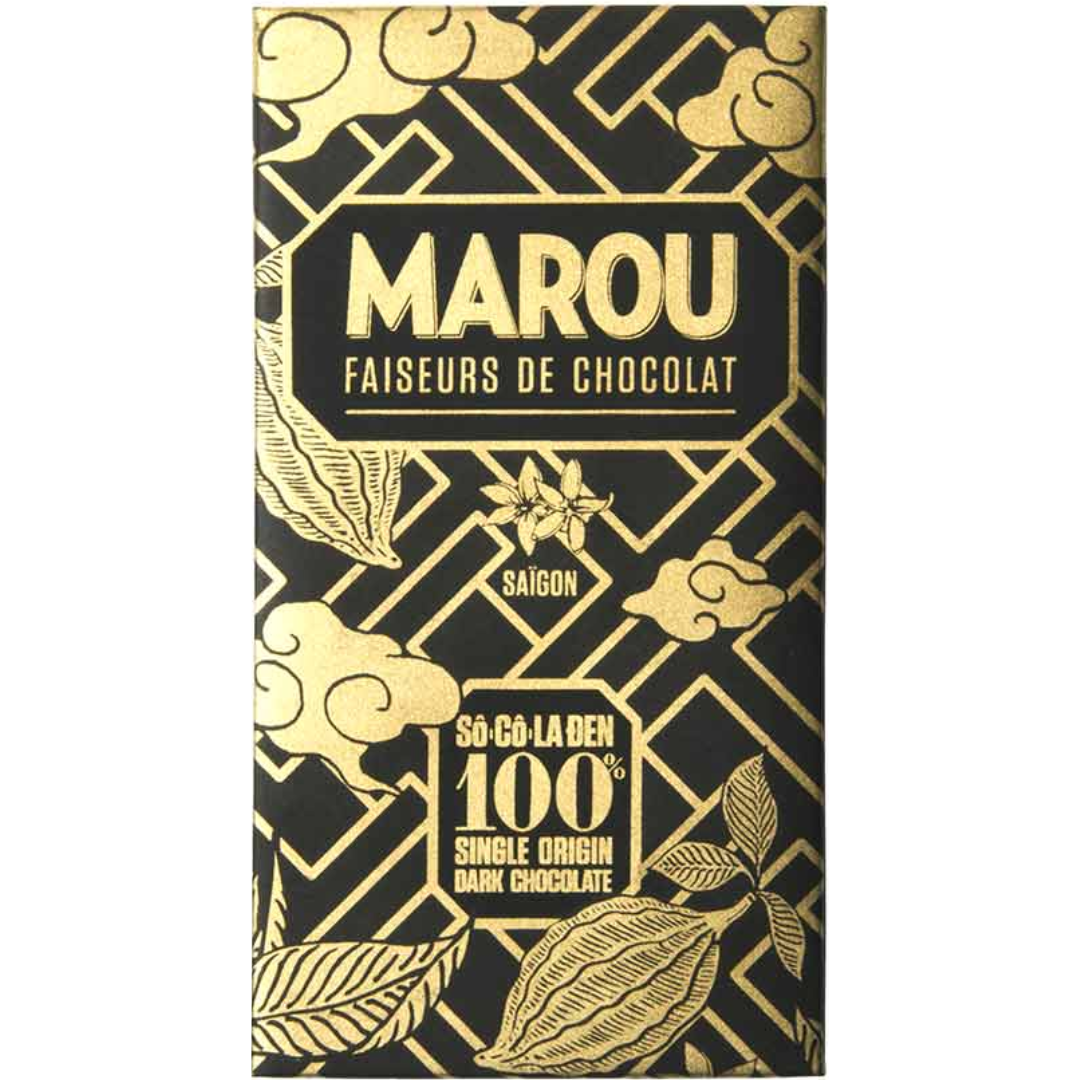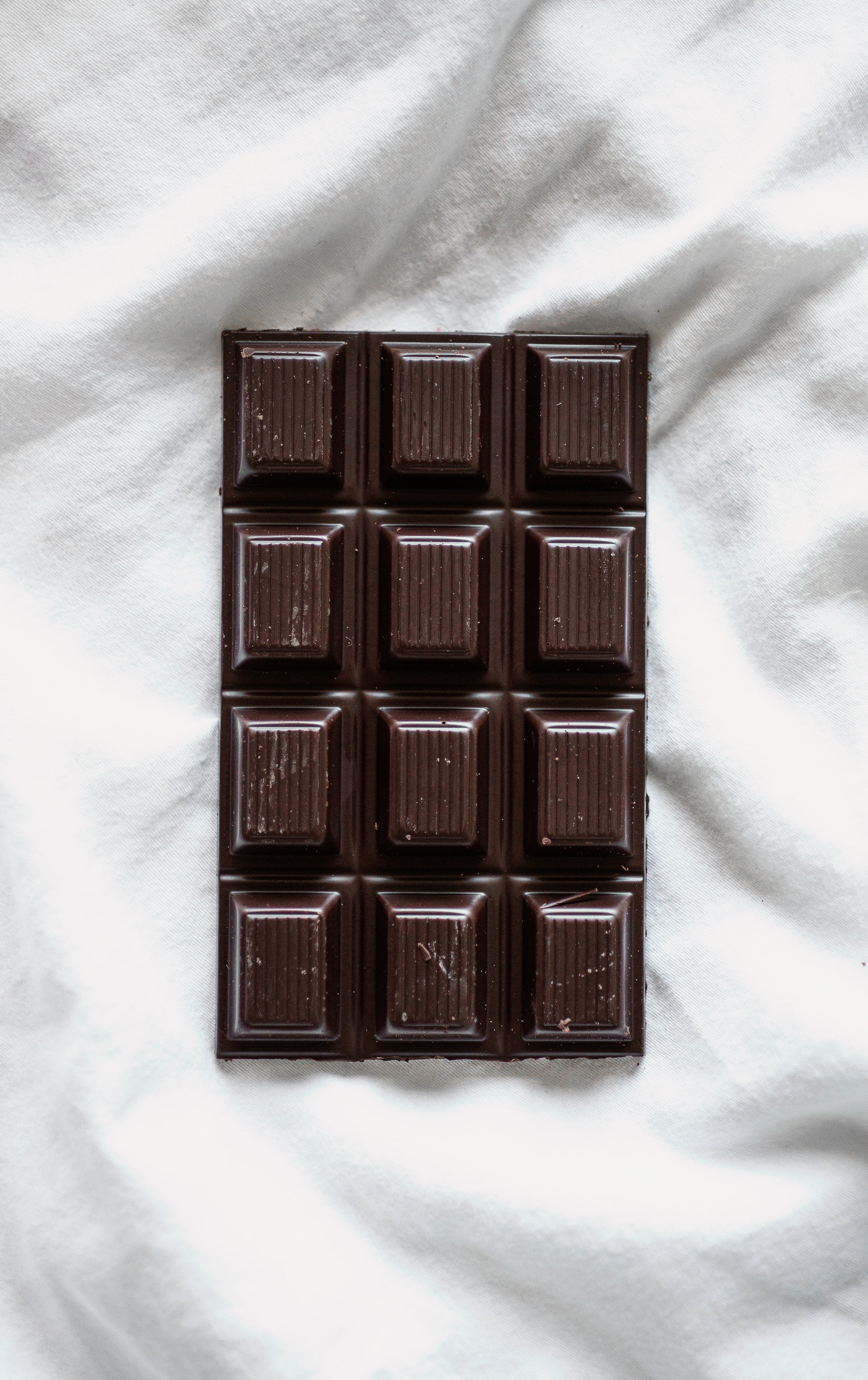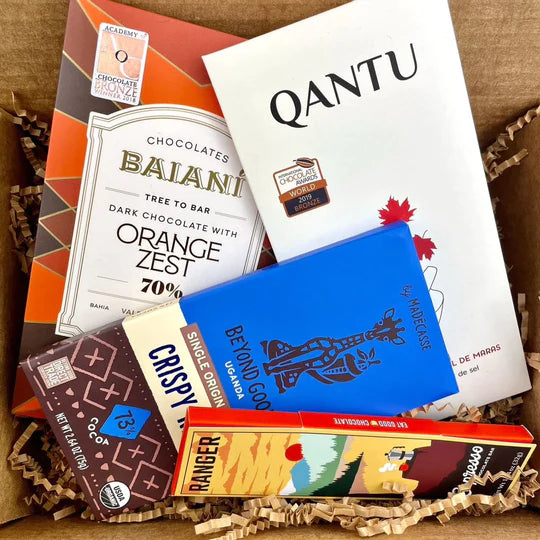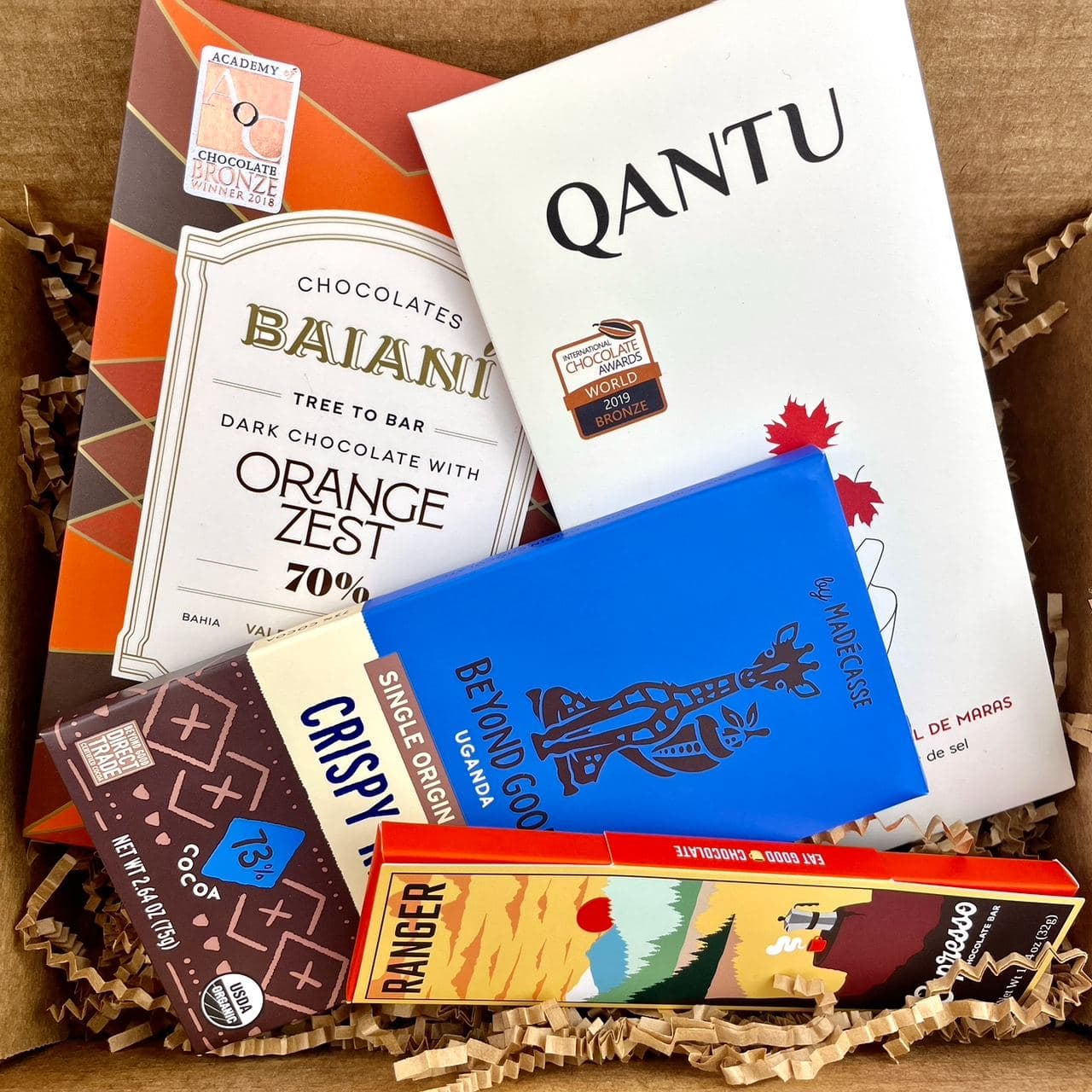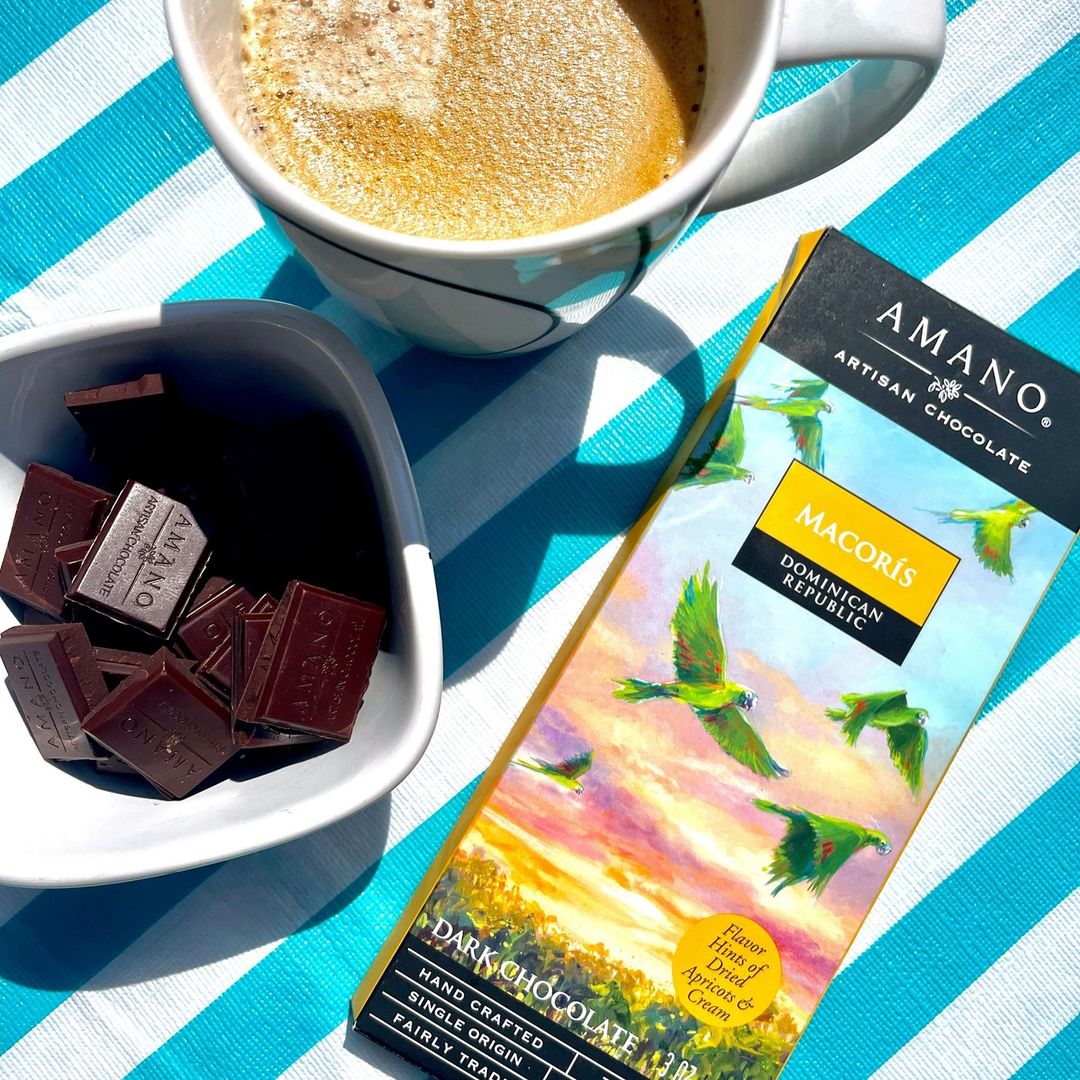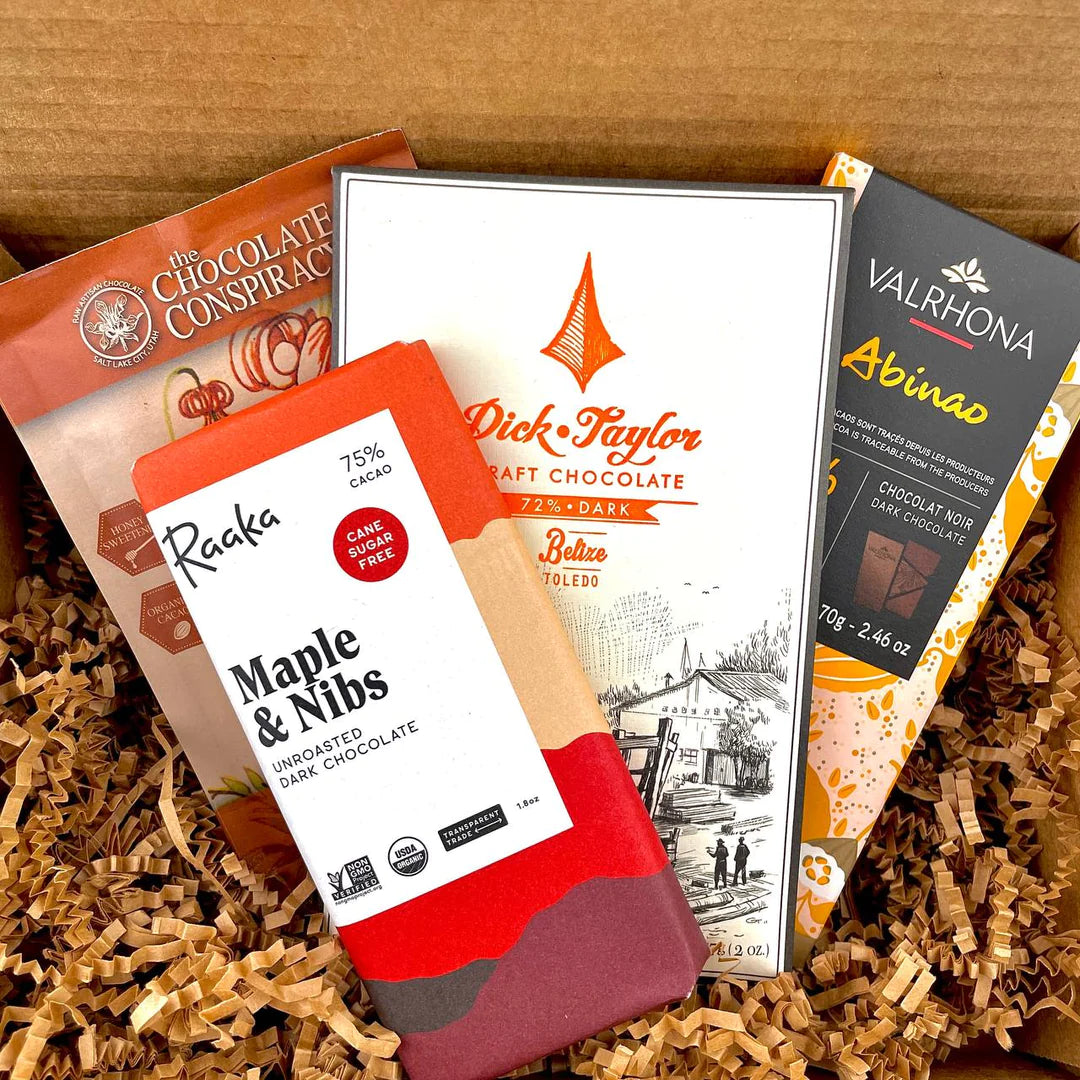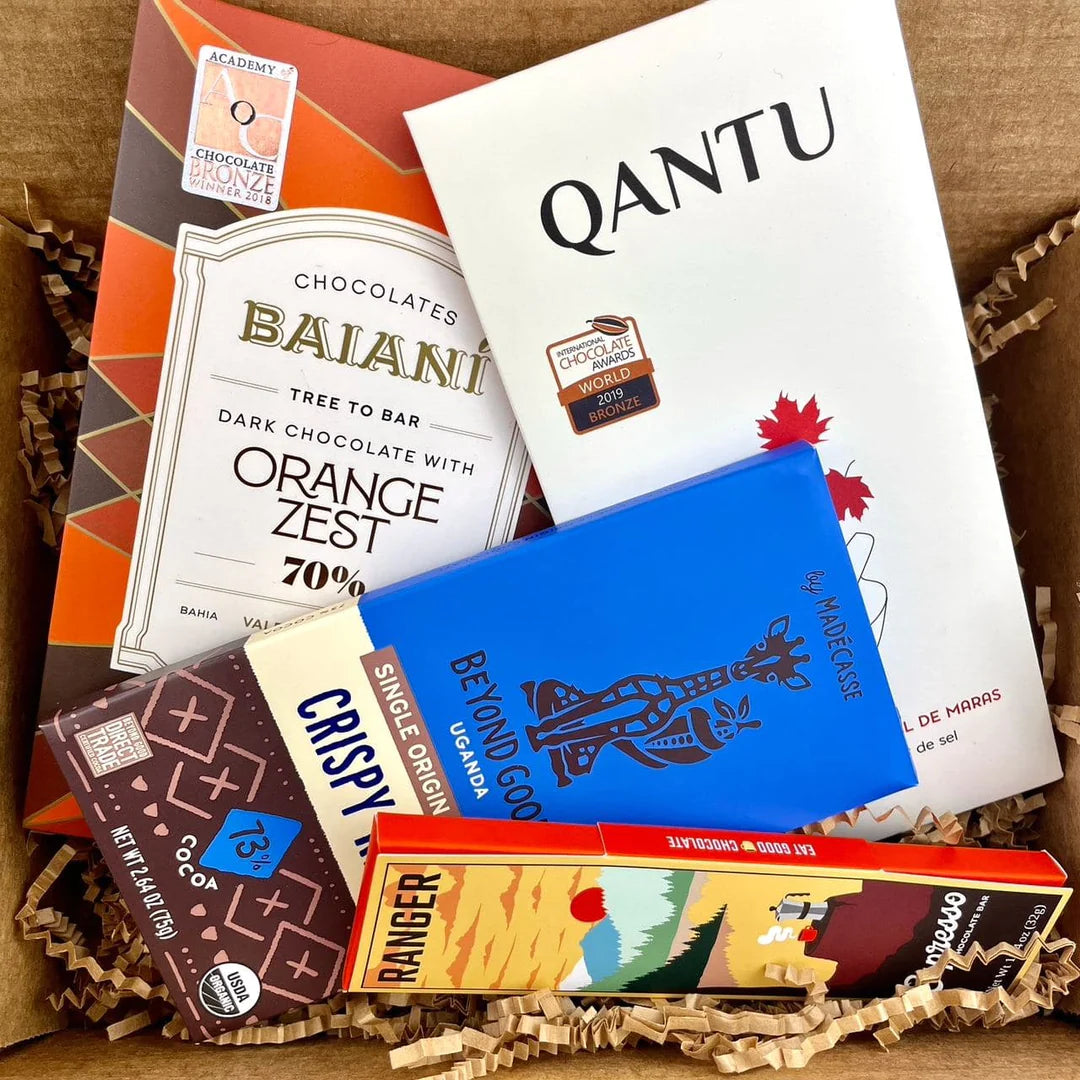Chocolate Purveyors is a blog series where we connect and discuss everything chocolate with both makers and enthusiasts. This discussion is with Emily de Urías from Belu Cacao.
It was a sunny Sunday morning when a friend brought over a Belu Cacao chocolate bar to our monthly tasting, she asked me if I had ever heard of the chocolate maker, I hadn't. She told me it was a Salvadorian maker, who sources and makes its chocolate in El Salvador while helping women from rural areas by providing them with good jobs they typically wouldn't be exposed to, empowering them and their families. After reading more on their story, I knew they had to be featured in our monthly craft chocolate box. Belu Cacao Panela 70% was one of the bars featured in our May box.
I reached out to Emily to work together on our Taste Chocolate like an Expert blog post. After working with her on the blog I asked if she would be interested in being part of this blog series when she accepted, I was happy to find out more about the Belu Cacao story and to share it.

Photo Credit Belu Cacao
Do you remember your first experience with real chocolate? What was it?
I can't remember exactly the first time I tried fine chocolate, but I know for sure that I've always loved chocolate. Ever since I was a little girl I used to look for the "dark" chocolate in the assorted chocolate bags and I would save them for special occasions. Later on in life, I studied at Babson College located in a town near Boston, so whenever I went into the city I would treat myself with a Godiva dipped apricot and that was heaven and a splurge to a budget-constrained student.
What did you do before Belu Cacao and what made you start crafting chocolate?
Before I started with chocolate making I worked in banking and finance but decided to take some time off to take care of my newborn twins and then my third child. During this period, I noticed in the news that the government of El Salvador was trying to reactivate the cacao production. A few years before that, my husband (at that time, boyfriend) and I had tried to make Tablilla (hot chocolate with spices) from scratch in an effort to make a gift to our friends living in the US; needless to say our experiment failed, but the thought of chocolate making lingered. So when I heard the news I thought it was the perfect timing to experiment again and try to make chocolate with less sugar and more cacao content; after all, as a mom, I was constantly looking for healthy snacks to give to my children.

You are one of few Salvadorian craft chocolate makers, do you see craft chocolate gaining popularity in El Salvador?
Yes, definitely. I was the first to make craft chocolate from fine Salvadorian cacao, in small batches, experimenting with flavors that used natural ingredients like orange, ginger, salt, and others to enhance the bars. My main goal was to make a bar with less sugar, no preservatives, no soy lecithin and that tasted and looked so good that Salvadorians would feel proud to buy as a gift for someone special. I believe the whole concept struck a chord. I started out in local farmers markets and I could see people from different age groups interested in the product; foodies, trendsetters, people who have to watch out for sugar intakes, cooks, etc. A couple of years later new craft chocolate makers started popping up in the farmers' markets and more and more people were looking and buying dark chocolate from local producers.
How has Belu Cacao helped women from rural areas in El Salvador, how much opportunity is there for these women?
We've been able to create jobs that provide income to single mothers who not only face that challenge but also live under very difficult circumstances directly affected by gang violence. They live in rural areas that are difficult to reach, not only because of poor roads but because they are part of gang territories.
Take, for example, Reina. Alongside Reina we learned the process of how to make Tablillas in a very traditional way, grinding beans in our town's community mill, molding them by hand and using only natural ingredients. As we grew, we then needed additional help and Reina was having trouble at home because her mom needed to work and could no longer take care of her six-year-old daughter, Astrid. Fortunately, the solution was to hire Mercedes (Reina's mom) by bringing her the roasted cacao beans so she could winnow them at home in her spare time when Astrid was at school. This has become her permanent source of income and now Mercedes is empowered to hire her own help in the winnowing process, still doing it in the comfort of her own home.
In the past year, Nancy has come to help in the store. We've accommodated her schedule so she can take English lessons (that we've been able to sponsor) before coming to work. Our newcomer is Roxana, who had been working at a "maquila" (apparel factory) for some time but was recently laid-off. She started off as a temporary help but due to her great attitude and work ethic, we've made an effort to hire her permanently. We believe in providing rural women with a safe and suitable environment that will not only help them grow as individuals but as chocolate professionals.
El Salvador is not a large grower of cacao, do you find trouble sourcing quality cacao?
Initially, it was a real challenge. Like I explained before, I started making chocolates when El Salvador was just starting to invest in the resurgence of cacao. The first harvest takes at least 3 years to reap, so at the beginning, it was very difficult to find quality Salvadoran cacao. Once the first crops started to produce, the next challenge was the fermentation process. It has taken me years of going back and forth with local growers reviewing their processes to get the fermentation at the level needed to make high-quality chocolate. It's still a work in progress, but I believe eventually many of the farmers will fully understand the need for a perfected fermentation process. Looking for growers with high-quality cacao is a permanent job.
What have you found to be the biggest challenge in making chocolate in El Salvador?
Initially, it was sourcing Salvadoran cacao and then, the funding to grow a new business. When I was doing this from home, fixed expenses were less than when you have to rent space for production and point of sale. You then need more people to help with production, packaging, etc. El Salvador economy has grown on average 2% for the last decade, so fine single origin chocolate is a luxury in a country where most of the population barely make ends meet. Funding for start-ups or growing business is non-existent, so for all of these reasons every day is a struggle to keep going.
What have you found to be the biggest reward in making chocolate El Salvador?
Being able to provide jobs to women who would otherwise find it difficult to work in a decent environment, creating a positive ripple effect in their personal lives and their families.
If you weren’t making chocolate what would you be doing?
Teaching. I believe that the future can be brighter if you share your knowledge with the younger generation. By knowledge I don't mean textbook concepts, but what you've learned in the process of building something; failures, successes, surprises, etc.
If you could only eat one chocolate bar for the rest of your life, what bar would it be?
Belú Milk Chocolate.
 Photo Credit Belu Cacao
Photo Credit Belu CacaoWhat does the future hold for Belu Cacao?
I would love the brand to keep growing so the world can taste a "sweeter" side of El Salvador, one that's not usually seen or heard in the news. I would love the business to keep growing so I can provide more sustainable jobs for cacao growers and families that work at Belú.

To get started with craft chocolate, start with our Kekao Box. We search the world for the finest chocolate bars and bring them right to your doorstep monthly. From rich dark Peruvian chocolate bars to new start-up chocolate bars on the come up, you never know what you'll get inside the box! Each month we will curate 4 to 5 premium specialty crafted chocolate bars.
If you want to just try a couple of bars, check out our online chocolate store.
If you have any questions regarding this blog, our Kekao Box, or premium craft chocolate bars, feel free to contact us! Keep up with us by subscribing to our newsletter or following us on Facebook, Twitter, and Instagram.

